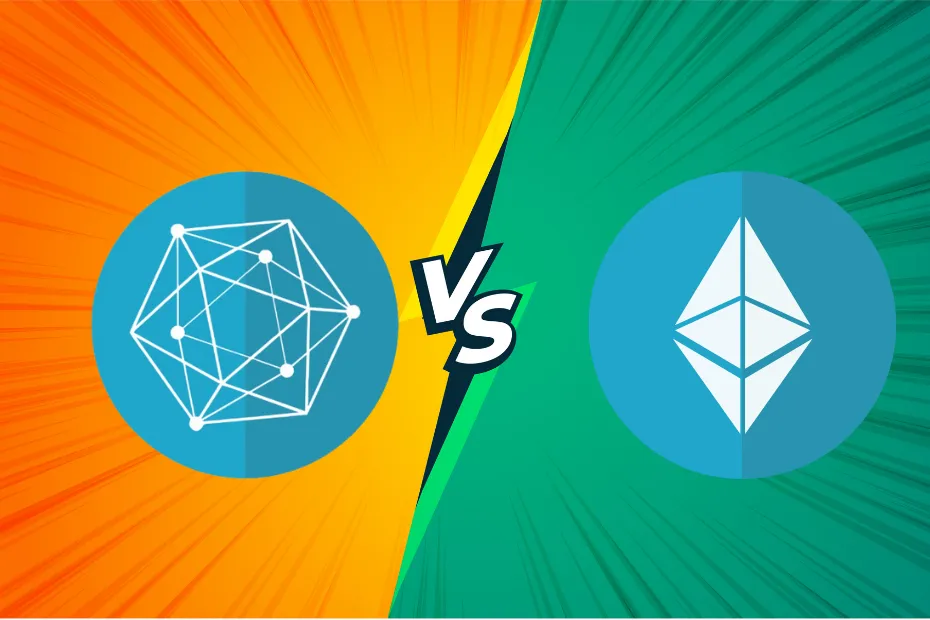Create advanced cross-industry blockchain technologies with ValueCoders. Our proficiency in Hyperledger and a deep desire for hands-on work with difficult blockchain projects make us your best companion for Hyperledger development.
Get free consultation and let us know your project idea to turn it into an amazing digital product.

As a Blockchain app development company, we are proud of our team, experts in diverse Blockchain development technologies like Solidity, dApp, Stellar, etc. Our Blockchain development specialists hold relevant knowledge about the following core technologies:

Our experienced developers have expertise in developing distributed ledger applications using Hyperledger fabric. You can build a custom and scalable blockchain solution that can meet your specific business needs.
Under Hyperledger development, we provide:
From startups to big enterprises, development
From startups to big enterprises, development
From startups to big enterprises, development
From startups to big enterprises, development
From startups to big enterprises, development
From startups to big enterprises, development
From startups to big enterprises, development
Drop us a line and we'll get back to you immediately to schedule a call and discuss your needs personally.


Hyperledger is a specialized kind of blockchain technology designed for businesses. It’s like a digital ledger that records transactions securely. Imagine a super-organized bookkeeping system that companies can use to keep track of their activities and transactions. Here’s what you need to know in more detail:
Open Source and Collaborative: Hyperledger is not owned by a single company. Many experts from different organizations work together to build and improve it. This collaborative approach ensures it’s trustworthy, adaptable, and constantly evolving.
Enterprise-Ready: Hyperledger is tailor-made for big businesses. Unlike other blockchain systems focusing mainly on cryptocurrencies, Hyperledger is designed to help companies manage their operations more efficiently and securely. It’s like a high-tech toolbox for businesses to solve complex problems.
Modular Frameworks: Imagine building with blocks. Hyperledger gives you different tools, like frameworks, that you can put together in the best way for your business. It’s not a one-size-fits-all approach; you get to choose the pieces that suit your specific needs and create a customized solution.
Hyperledger boasts some impressive features that businesses find valuable. Let’s dive a bit deeper into these features:
Privacy Control: In the business world, certain information must be kept private. Hyperledger allows you to control who has access to what data. This means sensitive information is kept from unauthorized eyes while enabling necessary parties to access the relevant data.
Flexible Consensus: Consensus is when everyone agrees that a transaction is valid. Hyperledger gives you options for how this agreement happens. Depending on your business requirements, you can choose the best consensus mechanism that suits your needs. This flexibility is important because different industries have different ways of doing things.
Smart Contracts: Think of smart contracts as digital agreements that can execute themselves. Hyperledger ensures that these contracts are not only self-executing but also fair and resistant to tampering. This is crucial for automating complex business processes securely.
Scalability: As your business grows, the number of transactions you need to process increases. Hyperledger is designed to scale along with your business, ensuring it can handle a high volume of transactions without slowing down or compromising efficiency.
The advantages of Hyperledger are clear and significant:
Transparency: Hyperledger ensures that all participants in a network see the same information. This transparency reduces misunderstandings and creates a shared truth among participants.
Security: The data stored in a Hyperledger-based system is highly secure. Once a transaction is recorded, altering or tampering with it is challenging. This robust security mechanism enhances trust among participants.
Cost Savings: Hyperledger can streamline processes by eliminating the need for intermediaries in some cases. This not only speeds up processes but also reduces costs associated with third-party involvement.
Efficiency: With clear records and fewer intermediaries, business operations become more efficient. Processes are streamlined, leading to faster execution and reduced chances of errors.
Hyperledger’s versatility benefits various industries:
Finance: Hyperledger is used by banks and financial institutions for secure transactions, fraud prevention, and regulatory compliance.
Supply Chain: Companies utilize Hyperledger to track products from raw materials to end consumers. This ensures authenticity, reduces fraud, and enhances traceability.
Healthcare: Hyperledger manages patient records securely, allowing authorized medical professionals to access necessary information. This maintains patient privacy while improving healthcare efficiency.
Manufacturing: Hyperledger aids in tracing the origin and journey of components in manufacturing processes. This helps in identifying and addressing quality issues swiftly.
Ethereum and Hyperledger are two important players in blockchain technology, but they have different focuses and purposes. Let’s compare them in more detail:

Ethereum:
Use Case: Ethereum is known for enabling decentralized applications (DApps) and smart contracts. It’s like a global computer where hyperledger developers can build and run applications without a single central authority.
Cryptocurrency Focus: Ethereum introduced the concept of smart contracts, which are self-executing contracts with the terms of the agreement directly written into code. It’s the foundation for many cryptocurrencies, including Ether (ETH), used to pay for transactions and services on the Ethereum network.
Decentralization: Ethereum emphasizes decentralization for applications and transactions. It’s about reducing the control of central entities and enabling peer-to-peer interactions.
Public Blockchain: Ethereum operates on a public blockchain, meaning anyone can participate and validate transactions.
Consensus Mechanism: Ethereum currently uses a Proof of Stake (PoS) consensus mechanism called Ethereum 2.0 to secure its network.
Development Community: Ethereum has a large and active development community focused on creating new DApps, improving the network, and exploring innovative use cases.
Hyperledger:
Use Case: Hyperledger is designed with a focus on businesses and enterprises. It’s not primarily about cryptocurrencies but about helping companies collaborate and optimize processes using blockchain technology.
Enterprise Applications: Hyperledger provides various frameworks tailored for specific enterprise use cases, such as supply chain management, identity verification, and more.
Permissioned Blockchains: Hyperledger often employs permissioned blockchains, meaning that participants are known entities with specific roles in the network.
Consensus Mechanism: Hyperledger frameworks allow flexibility in choosing consensus mechanisms based on the specific requirements of the use case.
Privacy and Confidentiality: Hyperledger offers features for privacy and confidentiality, allowing businesses to control who can access and view certain data.
Private Consortium Networks: Hyperledger is often used to create private consortium networks, where organizations collaborate using blockchain technology.
Interoperability: Hyperledger aims to provide interoperability between different frameworks, enabling businesses to connect and collaborate seamlessly.
Ethereum is like a global platform for decentralized applications and cryptocurrencies, emphasizing public participation and open-source development. In contrast, Hyperledger is focused on facilitating business collaborations and optimizing processes through tailored blockchain solutions, often in private or consortium settings.
In choosing between Ethereum and Hyperledger, it depends on your goals. If you’re interested in building decentralized applications and cryptocurrencies, Ethereum might be the better fit. On the other hand, if you’re looking to enhance business operations and collaborations using blockchain technology, Hyperledger’s frameworks are more suitable.
Hyperledger fits all business sizes:
Large Businesses: Hyperledger is a powerful tool for securely managing intricate operations and collaborations at an enterprise level.
Small Businesses: It’s not too complex for smaller enterprises. Hyperledger’s modular approach allows small businesses to adopt the parts that align with their needs, helping them grow efficiently.
In essence, Hyperledger offers a toolkit approach. You can select the tools that match your business requirements, creating a robust and customized solution regardless of your business’s size or complexity.
Android app development is booming, and it doesn’t seem to be slowing down anytime soon. With an estimated 133 million
Learn MoreIn market fields with massive rise in transactions based on Bitcoin which uses Blockchain concept.
It is a blockchain-based crowdfunding platform where fundraisers/project posters will be able to create a fundraising Project & can raise funds.
Are you a startup, an Entrepreneur, or an enterprise? Or a mobile app developer who wants to know about the
Learn MoreAns. ValueCoders offers expertise in building tailored Hyperledger solutions for diverse industries, ensuring transparency, security, and scalability while aligning with your business goals.
Ans. The development timeline varies based on project complexity. However, ValueCoders follows an efficient process to deliver solutions within reasonable timeframes, ensuring quality and timely deployment.
Ans. Absolutely, ValueCoders specializes in integrating existing systems with Hyperledger blockchain, enhancing transparency and efficiency while minimizing disruption to your operations.
Ans.Our process involves thorough requirement analysis, design, development, rigorous testing, smooth deployment, and ongoing support, ensuring a successful and well-structured Hyperledger solution.
Ans. Certainly, we would be delighted to discuss your unique needs and explore how our expertise can be tailored to craft a customized Hyperledger solution that perfectly aligns with your business objectives.
We are grateful for our clients’ trust in us, and we take great pride in delivering quality solutions that exceed their expectations. Here is what some of them have to say about us:
Trusted by Startups and Fortune 500 companies
We can handle projects of all complexities.
Startups to Fortune 500, we have worked with all.
Top 1% industry talent to ensure your digital success.



Let's discuss how we can bring your vision to life.